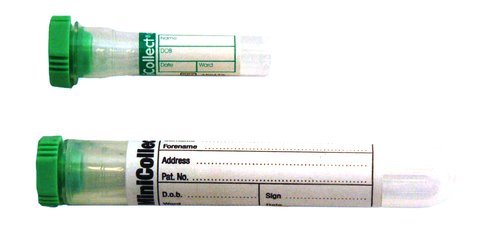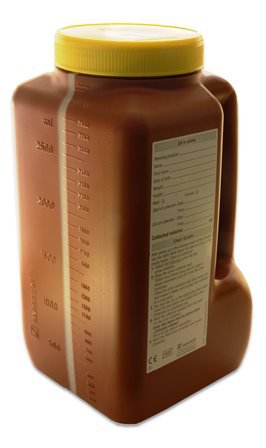Creatinine and eGFR CKD-EPI
Chemical Pathology
Notes
- Creatinine forms part of the standard "Creatinine & Electrolytes" test profile and is used to assess renal function.
- Creatinine may be requested on its own as part of the cardiovascular risk assessment and is reported along with eGFR.
- Glomerular filtration rate (GFR) is the best overall index of kidney function. Normal GFR varies according to age, sex, and body size, and declines with age.
- The National Kidney Foundation recommends using the CKD-EPI Creatinine Equation (2009) to estimate GFR.
- The locally reported eGFR (estimated GFR) is therefore calculated using the CKD-EPI equation.
Please note that adjustment for race is no longer recommended by NICE in the calculation of eGFR using the CKD-EPI Creatinine equation. (NICE Guidance NG203 - Updated August 2021). N.B. The laboratory has never adjusted eGFR results for race and therefore reported results will not be changing with this update.
- eGFR has only been validated for adults >18 years of age. For children the Schwartz equation.
- Creatinine can also be assayed in urine, for example so as to estimate creatinine clearance (requires blood and 24h urine collection within +/-24h of each other).This is now rarely required as largely replaced by calculation of estimated glomerular filtration rate (eGFR), or by use of the Cockroft-Gault equation as appropriate.
Sample requirements
For adults, blood taken into a 5mL gold top tube (rust top for the Acute Unit)

For children, blood taken into a 3.5mL rust top tube

For neonates, blood taken into a 0.8mL minicollect lithium heparin tube. Please list the tests of particular interest so that some priority can be given to analysis if plasma volumes are small.

For 24h urine creatinine, a 24 hour urine collection container is required.

Storage/transport
Send samples at ambient temperature to the laboratory. If unavoidable, samples can be stored refrigerated overnight.
Required information
Relevant clinical details.
Turnaround times
The assays are run throughout the day and night. The in-lab turnaround time is normally less than 24 hours.
The test can be ordered as an urgent request.
Reference ranges
| Age/gender | Reference range (µmol/L) |
|---|---|
| 0–14 days | 27 - 77 |
| 14 days–1 year | 14 - 34 |
| 1–3 years | 15 - 31 |
| 3–5 years | 23 - 37 |
| 5–7 years | 25 - 42 |
| 7–9 years | 30 - 47 |
| 9–11 years | 29 - 56 |
| 11–12 years | 36 - 64 |
| 12-13 years | 36 - 67 |
| 13–14 years | Male: 38–76, Female: 38–74 |
| 14–15 years | Male: 40–83, Female: 43–75 |
| Male > 15 years | 59–104 |
| Female > 15 years | 45–84 |
Further information
To learn more about creatinine, visit Lab Tests Online or access the Monograph of the Association of Clinical Biochemistry and Laboratory Medicine.
To learn more about eGFR visit Lab Tests Online: eGFR - Calc. Creatinine Clearance
Further information for health professionals regarding eGFR can be found on the GHNHSFT Nephrology webpages
Page last updated 01/11/2021